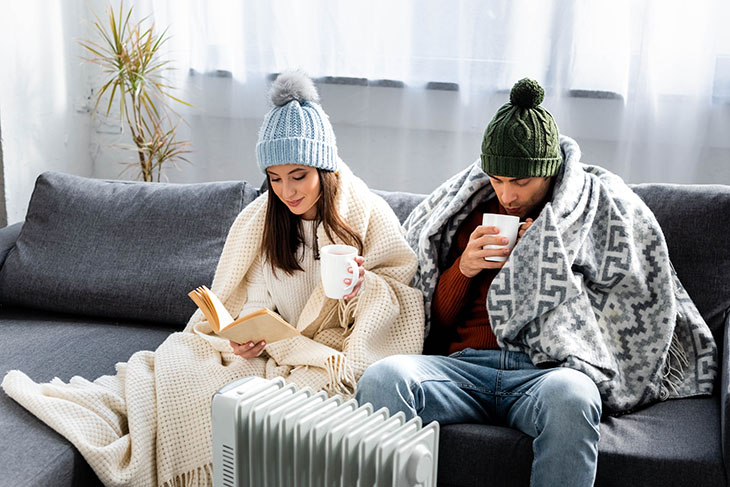Heating Equipment Safety
Cold weather is upon us and, for many areas across the world, staying warm ¬with the help of heating equipment is a must. We want everyone to stay warm this winter, but remember that heating equipment can be dangerous — causing an estimated 50,500 home fires and 500 deaths between 2013 – 2017, according to the National Fire Protection Association (NFPA). Half of these home fires are reported during the months of December, January, and February.
The NFPA recommends people install wood burning stoves, either by following manufacturer’s instructions or having a professional perform the installation. All fuel-burning equipment should be vented to the outside to avoid carbon monoxide (CO) poisoning.
The also recommend installing and maintaining CO alarms to avoid the risk of CO poisoning. If you smell gas coming from your gas heater, do not heat or turn on the appliance. Leave the home immediately and call your local fire department or gas company.
Below are additional heating safety tips to keep in mind this winter from the NFPA:
- Keep anything that can burn at least three feet (one meter) away from heating equipment, like the furnace, fireplace, wood stove, or portable space heater
- Have a 3-foot (one meter) “kid-free zone” around open fires and space heaters
- Never use your oven to heat your home
- Have a qualified professional install stationary space heating equipment, water heaters, or central heating equipment according to the local codes and manufacturer’s instructions
- Have heating equipment and chimneys cleaned and inspected every year by a qualified professional
- Remember to turn off portable heaters when leaving the room or going to bed
- Always use the right kind of fuel, specified by the manufacturer, for fuel-burning space heaters
- Make sure the fireplace has a sturdy screen to stop sparks from flying into the room. Ashes should be cool before putting them into a metal container. Keep the container a safe distance away from your home
- Test smoke alarms at least once a month
To learn more, visit: https://www.nfpa.org/.../nfpa-urges-added-caution-when...
Credit: NFPA
Learn more about HazTek Safety & OSHA Training.
